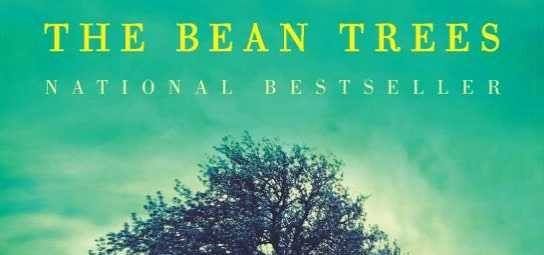
Introduction to The Bean Trees by Barbara Kingsolver
The Bean Trees, published in 1988, is the debut novel by acclaimed American author Barbara Kingsolver. This coming-of-age story follows the journey of Taylor Greer, a young woman from Kentucky who sets out to find herself and ends up becoming an “instant mother” to a young Cherokee girl named Turtle. The novel explores themes of motherhood, community, immigration, and the power of human connection in the face of adversity.
Plot Summary
The Bean Trees begins as Taylor, originally named Marietta, leaves her hometown of Pittman, Kentucky, determined to make a new life for herself out West. Along the way, her car breaks down in Oklahoma, where a Native American woman suddenly appears and deposits a three-year-old girl, Turtle, into Taylor’s car before disappearing. Unsure of what else to do, Taylor decides to care for the child and continues her journey to Tucson, Arizona.In Tucson, Taylor meets Lou Ann, a fellow Kentuckian, and her young son Dwayne Ray. The two women become roommates and close friends as they navigate the challenges of single motherhood. Taylor also meets Mattie, the owner of a used tire shop, and Estevan and Esperanza, a Guatemalan couple seeking refuge from political violence in their home country.As the story progresses, Taylor forms a deep bond with Turtle and learns to embrace her new role as a mother. She also becomes involved in helping Estevan and Esperanza, putting her own safety at risk. The novel culminates in a dramatic confrontation that tests the strength of Taylor’s newfound family and community.
Major Themes
Motherhood and Family
The Bean Trees explores unconventional forms of motherhood and family. Taylor, who never intended to have children, finds herself thrust into the role of mother to Turtle. The novel examines how Taylor grows into this role and the challenges she faces. It also celebrates the creation of family through choice and community rather than traditional biological ties.
Immigration and Refugees
The novel addresses the plight of refugees, particularly those fleeing political violence in Latin America. Estevan and Esperanza’s story highlights the human cost of such conflicts and the importance of compassion and solidarity. Taylor’s decision to help them despite the risks underscores the novel’s theme of standing up for what is right.
Community and Belonging
Throughout the novel, Taylor finds support, friendship, and a sense of belonging in the diverse community she encounters in Tucson. The relationships she forms with Lou Ann, Mattie, and others demonstrate the power of community to sustain and uplift individuals facing difficult circumstances.
Identity and Self-Discovery
As Taylor embarks on her journey West, she undergoes a process of self-discovery and transformation. By shedding her given name Marietta and adopting the name Taylor, she symbolically sheds her past and embraces a new identity. The novel follows her growth into a strong, independent woman who is not afraid to stand up for herself and others.
Style and Symbolism
The Bean Trees is written in a straightforward, accessible style that incorporates elements of humor, irony, and symbolism. Kingsolver employs irony to emphasize the changes in Taylor’s lifestyle by the end of the novel. Symbolism is used throughout, such as Taylor’s name change and her westward journey, which evokes themes of Manifest Destiny and self-discovery.The novel’s title itself is symbolic, referring to the hardy, drought-resistant plants that thrive in the desert landscape. These “bean trees” represent the resilience and adaptability of the novel’s characters as they face the challenges of their lives.
Critical Reception and Legacy
The Bean Trees was well-received by critics upon its publication in 1988. The Los Angeles Times praised it as the “work of a visionary,” while the New York Times included it in their Notable Books of the Year list. Since then, the novel has become a commonly assigned reading in high school and college literature classes, introducing new generations of readers to Kingsolver’s powerful storytelling and themes.The Bean Trees has also been praised for its portrayal of strong female characters and its exploration of important social and political issues. Kingsolver’s use of a non-standard perspective and her focus on feminism and environmentalism have been interpreted as examples of eco-feminism in literature.
Conclusion
The Bean Trees is a powerful and thought-provoking novel that explores the human experience through the lens of one woman’s journey of self-discovery and the creation of a new family. Kingsolver’s vivid characters, engaging storytelling, and exploration of important themes make this novel a classic of modern American literature. The Bean Trees continues to resonate with readers today, inspiring them to consider the importance of community, compassion, and standing up for what is right.
FAQ
- What is the main theme of The Bean Trees?
The main themes of The Bean Trees include motherhood, family, immigration, community, and identity. - Is The Bean Trees based on a true story?
While the novel is not based on a specific true story, it does draw inspiration from real-world events and issues, such as the plight of refugees fleeing political violence in Latin America. - What is the significance of the title The Bean Trees?
The title refers to the hardy, drought-resistant plants that thrive in the desert landscape, symbolizing the resilience and adaptability of the novel’s characters. - What happens at the end of The Bean Trees?
The novel culminates in a dramatic confrontation that tests the strength of Taylor’s newfound family and community. Without giving away too much, the ending is both suspenseful and uplifting, leaving readers with a sense of hope and the power of human connection. - Is The Bean Trees part of a series?
Yes, The Bean Trees is the first novel in a trilogy that includes the sequels Pigs in Heaven and Animal Dreams.
| Work | Author | Link |
|---|---|---|
| The Bean Trees | Barbara Kingsolver | https://en.wikipedia.org/wiki/The_Bean_Trees |


